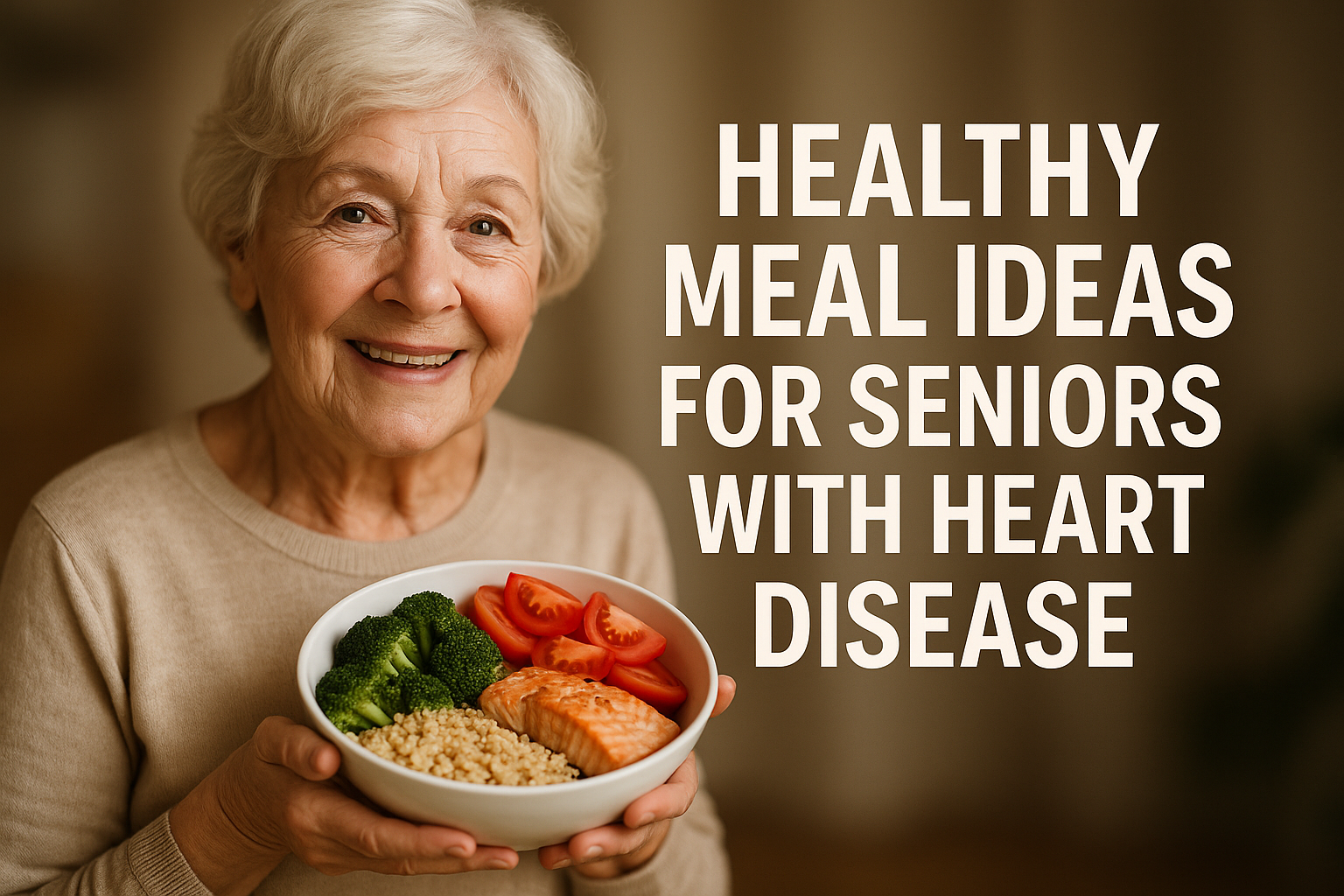Senior Heart Health A diet for heart health for seniors must not only be nutritionally sound, but also quick and easy for the senior to prepare and eat. Bay Shield: Fills the Attack Bar of e oh that ally For 3 turns, and for each turn that allu Attacks he will fill excess Attack Bar by 30% and increase the Defense for 3 turns. In this post, we’ll talk about some things to consider in terms of nutrition, ideas for heart-healthy meals, foods to avoid and meal planning tips that make eating well not only easy but also enjoyable.
Nutrition Guidelines for Seniors After Heart Surgery
What Are the Recommended Foods to Eat After Heart Surgery?
It is crucial to eat healthy after having heart surgery to supply your body with plenty of vitamins and minerals that will help in the healing process as well as proper heart health. Key nutrients include:
Fiber: Digestion Heart Disease Whole grains, fruits and vegetables too help your digestive system function efficiently, and can help reduce your risk for heart disease.
Healthy Fats: Opt for smaller postage-stamp-size portions of monounsaturated and polyunsaturated fats, found in foods like olives and olive oil, avocados and some fish such as salmon, trout and herring.
Lean Proteins: skinless chicken, skinless turkey, ground chicken or turkey, fish and even vegetarian protein are all great sources of the muscle building blocks.
It’s OK to have small frequent meals so as not to overwork you heart while it’s healing.
Best Food after heart bypass
A Surgery Teaching Post Surgery Diet For Heart Patients A surgery teaching post surgery diet for heart patients is important after a surgery. What to eat after bypass heart surgery Following is the list of best foods to eat after bypass heart operation, apart from the foods that cause the bloating and gas discomfort.
Low Fat Dairy: These are your milk, yogurt, cheese (fat free or low fat, of course) to give you that dairy and protein.
Leafy Greens: Spinach, kale and others not only provide antioxidants and ample of Vitamin K, important for both blood clotting and heart health.
Berries: Blueberries, strawberries and raspberries have strong antioxidants which are anti-inflammatory.
To help you recover and keep your heart safe looking ahead, eat less cholesterol, salt and saturated fat.
Smart Food Choices for Heart Health
Fruits and Vegetables and Whole grains and Heart-Health
Fruits: The fiber, vitamins and antioxidants in apples, oranges, pears and berries are good for your heart.
Vegetables: Broccoli, carrots and bell peppers are high in vitamins A and C, which are vital for immune function and heart health.
Whole grains: Oatmeal, quinoa, brown rice and barley are types of soluble fiber that strengthen your heart and lower your cholesterol.
It’s a realm in which bright fruits and tender vegetables converge, feeding our body and soul with a rainbow of nutrients.
Lean Proteins and Low-Sodium Options: Lean proteins such as chicken, turkey, tofu and beans, which deliver the beef without all that bad fat. And curbing salt, too, is important for controlling heart disease.
Foods to Avoid After Open Heart Surgery
Ingredients That Can Interfere With Recovery
After heart surgery, there are some foods that can be detrimental in assisting the recovery process and avoiding any risk or, putting extra strain on the heart. Types of Fly Some popular fly-types include:
Trans Fats: These fats found in many processed snacks, fried foods and baked goods raise bad cholesterol and will also clog your heart.
Sodium: Too much salt causes retention of fluid and raises blood pressure, which can impede your heart’s ability to heal.
Sugar: Overconsumption of sugar can lead to obesity and higher chances of getting diabetes – a potential cause of heart disease.
High-Risk Meals to Limit or Eliminate
Fried Foods: Too much fat clogs the arteries and you-know-who has to work hard.
Processed Meats: Bacon, sausages, and cold cuts are packed with sodium and unhealthy fats that can lead to heart disease.
Whole milk dairy: Opt for low fat or fat free milk products rather than your regular milk, cheese or butter.
You must replace your gravies with more healthy forms such as grilled, steamed and baked.
Easy & Delicious Meal Ideas for Heart Patients
Sample Heart-Healthy Breakfasts, Lunches, and Dinners
Breakfast: Kick things off with a bowl of oatmeal mixed with some fresh berries, a sprinkle of chia seeds and a light drizzle of honey. For more protein, serve them with a side of scrambled eggs, with some spinach added if you’re feeling ambitious.
Lunch: An earthy salad with mixed greens, grilled chicken, quinoa, avocado and lemon olive oil dressing. DANIELLA ZALCMAN FOR THE NEW YORK TIMES Serve with a whole grain roll on the side. recycle or reuse the onions.
Dinner: Grilled salmon with steamed broccoli and sweet potato cooked in the oven. This dish is packed with omega-3s, fiber and potassium — good for the old ticker.
They’re full of nutrients and they’re all really simple to make, which is even better when you’re elderly.
Snacks and Smoothies That Support Heart Function
Snack: Handful of nuts and 1 square of dark chocolate (for my taste I always choose almond / walnut for cravings). These are my 5 min healthy snack ideas for good fats and antioxidants for the day.
Smoothies: Mix banana, spinach, almond milk and chia seeds for a heart-friendly supply of potassium and omega-3 fatty acids.
Tips for Meal Prep and Planning
Being prepared is a great time saver to make sure seniors consistently eat heart-healthy meals. If the latter is the case, it’s time to get serious about meal prep, and start thinking about some food prep starts ideas.
Make in bulk: Make soups, stews and casseroles, and freeze for the week ahead.
Streamline: Use plenty of recipes to minimize the number of ingredients and how long they take to prepare, and buy fresh, pre-cut vegetables and pre-cleaned greens.
Organize: Date your meals (and ingredients) so you know when to use them (no one wants to call food poisoning).
There’s no need for a portion or hydration control: Being able to manage your portion sizes so you don’t overeat and to have a good weight is key when it comes to managing heart disease. Hydration is also important, seniors should drink a minimum of 8 cups of water a day. Try spicing up water with fresh fruit slices or a hint of herbal teas.
Conclusion
You don’t have to put in much effort to eat for a healthy heart. Older adults can eat their way to a better surgical outcome and recover more quickly, according to a study published in 2017. If you’re unable to plan your meals properly or require professional care and qualified personnel to take care of you in your old age, we’re available at Pecious Pearl Home Healthcare to give you the best food and care available for elderly!
FAQs
Q1: Can you tell me the best thing to eat after bypass surgery?
Heart–healthy fats, plus some protein for extra energy like olive oil, avocado. The other alternative is: lots of foods that are high in fibre.
Q2: Is banana beneficial for heart disease patients?
Yes, they are full of good nutrition and are great for improving heart health, containing potassium in high levels which prevents high blood pressure and helps to ease strain on the heart. Just don’t gorge on the eggs and eat them as part of a diverse diet.
Q3: What not to eat after open heart surgery?
Avoid foods that are high in saturated and trans fats, and sodium, such as fried items, processed meats and full-fat dairy. These are also in a family of genes that can elevate the risk of heart disease and slow healing.






